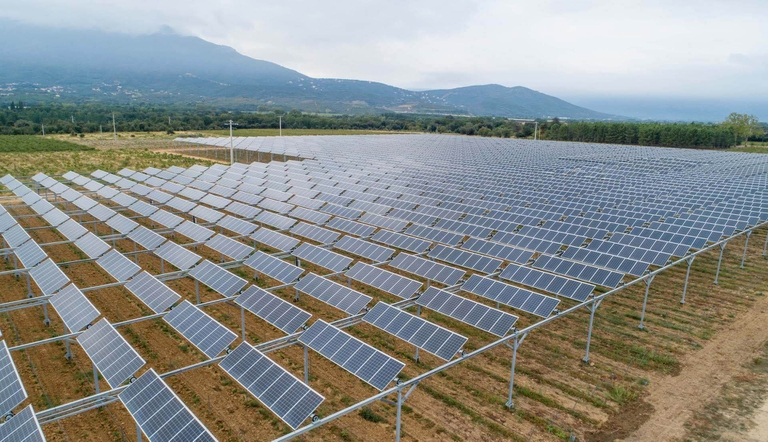https://www.lifegate.it/governo-fotovoltaico-a-terra
- |
- The Agriculture decree passed by the government prohibits new photovoltaic systems on potentially agricultural land.
- However, agrivoltaics and projects financed by the Pnrr will remain permitted.
- State of emergency declared due to drought in Sicily, measures against swine fever and brucellosis.
Better a system ground-mounted photovoltaic or a hectare of cultivated fields more?For the Italian government, the second solution is preferable. The Agriculture decree passed last night by the Council of Ministers, and in particular by the head of the Department of Food Sovereignty Francesco Lollobrigida and by the Minister of Environment and Energy Security Gilberto Pichetto Fratin, in fact, provides for a ban on the installation of ground-mounted photovoltaics in areas classified as "agricultural" by current urban planning plans.
Photovoltaic only suspended
A decision that appears to run counter to the desire declared in the past to facilitate renewable energy sources, but which instead responds to one of the needs expressed in recent weeks by the category of farmers, who had taken to the streets, in Italy as well as in Europe, to claim a series of requests.Among these, also that of putting a stop to the installation they defined “wild” of ground-mounted photovoltaic systems, which ended up taking away available land for cultivation.The objective of the decree, explains the government, is therefore to "balance the development of renewable energy with the protection of areas intended for agriculture, while at the same time encouraging projects that effectively integrate agricultural activities with energy production from solar sources".

Compared to the initial hypothesis, which envisaged a broader stop to ground-based photovoltaic systems, some important exceptions emerged from the negotiations between the two ministers involved:for example, installations financed under the implementation of the will not be affected by the new bans National recovery and resilience plan (Pnrr), as well as plants to be built in specific areas such as quarries, mines, private areas or under concession to the State Railways or airports.
Agrivoltaics, however, is safe
But above all, systems relating to will continue to be permitted agrivoltaic projects, which integrate the production of solar energy with agricultural activities "and in which the solar panels also act as protection for the crops beneath them" explained Lollobrigida at the press conference.“Let's intervene and put an end to what is a wild installation of ground-based photovoltaics.Obviously, with pragmatism, safeguarding some areas but limiting this ban to productive land."
For his part, Pichetto assured that, even if from now on (with exceptions) photovoltaics can only be installed on roofs, "the objective set by National integrated energy and climate plan about 38 gigawatts from solar energy by 2030 remains the same."A reassurance which, however, does not convince environmentalist associations at all, including Legambiente which, through its president, Stefano Ciafani, speaks of a “nonsense” rule, which does not solve the problem of excessive land consumption, denounced by the agricultural and environmentalist world".
There is also a case in Sardinia
The decree passed yesterday by the government was in a certain sense anticipated by a decision by the new president of the Sardinia region, Alessandra Todde, which somewhat surprisingly had promoted one total moratorium on new renewable plants (in that case, not only photovoltaic but also wind turbines), supporting the need for regulation of concessions in order to avoid the disfigurement of Sardinian landscapes.Also in this case the decision had been strongly criticized by associations such as the WWF which had spoken of an "anachronistic" decision, which mainly responds to the interests of the world of fossil energy (natural gas in particular), it means condemning Sardinia to a not in line with the energy transition".
The new Agriculture decree then intervenes on many other points, including incentives and support for agricultural companies, interventions for the kiwi dying (agricultural companies affected by the Kiwi die-off can access interventions from the National Solidarity Fund) and measures against African swine fever and the brucellosis, which afflict breeders and farmers, and the appointment of a commissioner - yet another - to combat the spread of the blue crab, a particularly infesting alien species, in the Mediterranean.Finally, a state of emergency was declared for 12 months ongoing water deficit in Sicily:the government allocates 20 million euros for this.
